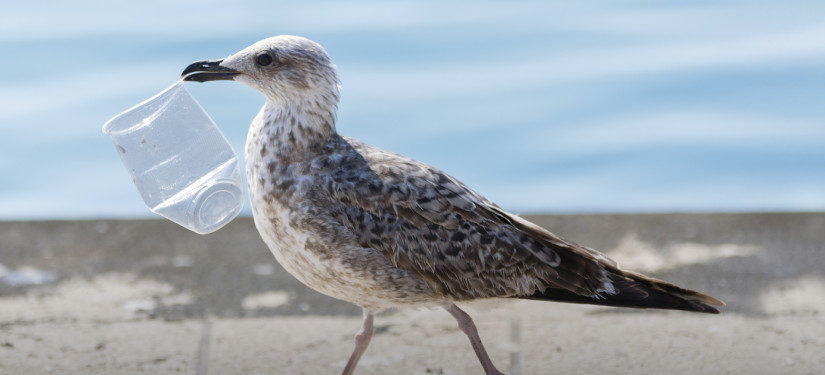Thursday, July 3, 2025
The proportion of single-use food packaging litter found on Canadian shorelines nearly doubled last year, according to Great Canadian Shoreline Cleanup’s annual “Dirty Dozen” report.
“We were startled to see that single-use food and beverage litter increased from 15.3 per cent of all litter in 2019 to 26.6 per cent in 2020,” says Julia Wakeling, outreach specialist for Great Canadian Shoreline Cleanup, a conservation partnership of Ocean Wise and World Wildlife Fund Canada. “We suspect the change may be one of the many implications of COVID-19, including more people ordering restaurant takeaway and consuming more individually packaged foods.”

Julia Wakeling, outreach specialist for Great Canadian Shoreline Cleanup, a conservation partnership of Ocean Wise and World Wildlife Fund Canada.
Also, for the first time in Shoreline Cleanup’s 27-year history, volunteers reported finding masks and other personal protective equipment (PPE) on their cleanups. “We didn’t have a category on our data cards last year to formally track the amount of PPE-related litter volunteers were finding, but we have added one for 2021,” added Wakeling. “This year’s results will be very interesting.”
With cleanups suspended for four months, and then limited to solo and single-household events, Great Canadian Shoreline Cleanup saw a 70 per cent drop in participation in 2020. Some 15,000 people removed over 41,000 kgs of litter from Canadian shorelines in 2020 compared to 83,815 volunteers and 163,505 kilograms in 2019. Armed with COVID-safe cleanup guidelines, Shoreline Cleanup hopes to make up for lost numbers in 2021 and encourages all Canadians to organize or participate in a physically distanced cleanup.

At every Shoreline Cleanup, volunteers use an official data card to collect citizen science data about the litter they pick up. Cigarette butts once again topped Great Canadian Shoreline Cleanup’s ‘Dirty Dozen’ list of most commonly found litter in Canada.
(Photo Credit: Great Canadian Shoreline Cleanup/Ocean Wise)
“Pollution, especially plastic pollution, is one of the greatest threats facing our ocean, but it is a threat we can tackle together. We all have a part to play,” said Lasse Gustavsson, president and CEO of Ocean Wise. “Plastic has become omnipresent in our daily lives and yet each decision we make at work, at home, at school or out and about, has the potential to have a positive impact.”
Added Megan Leslie, WWF-Canada’s president and CEO: “Every piece of garbage we remove from our freshwater and marine shorelines is one less piece that can harm wildlife. We are so grateful to all of our Shoreline Cleanup volunteers for their efforts to protect wildlife habitat and hope all Canadians will join us this year in taking action to help nature thrive.”
To register, visit ShorelineCleanup.ca.
Click here to read Great Canadian Shoreline Cleanup’s 2020 annual report.











